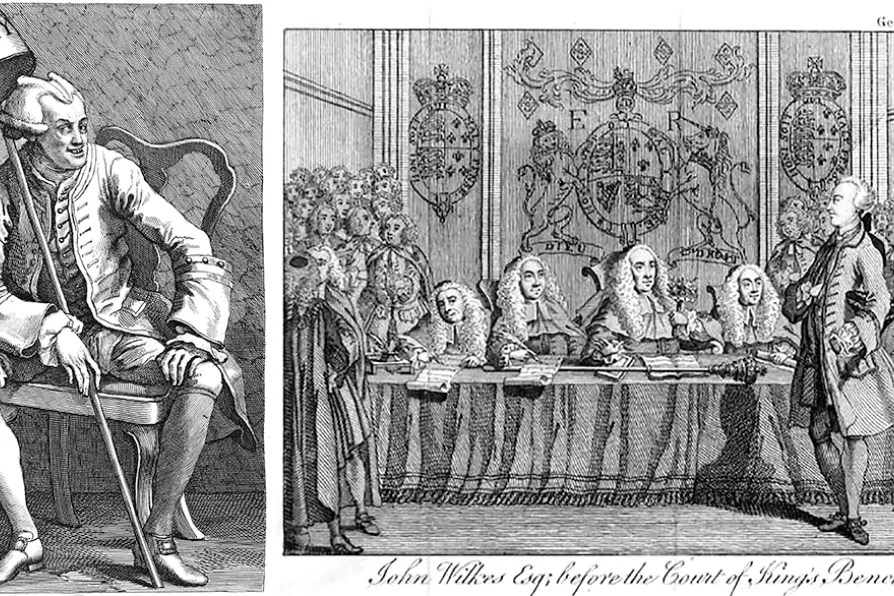As tens of thousands return to the streets for the first national Palestine march of 2026, this movement refuses to be sidelined or silenced, says PETER LEARY

 TALK OF THE TOWN: (L to R) John Wilkes caricatured by William Hogarth, 1763; John Wilkes before the Court of King's Bench, engraving from The Gentleman's Magazine for May 1768
[Public Domain]
TALK OF THE TOWN: (L to R) John Wilkes caricatured by William Hogarth, 1763; John Wilkes before the Court of King's Bench, engraving from The Gentleman's Magazine for May 1768
[Public Domain]
IF you were building a perfect rebel leader from a kit, I don’t think you’d end up with John Wilkes. You’d probably prefer someone who wasn’t a member of the orgiastic Hellfire Club, and who hadn’t been expelled from Parliament for writing a libellously pornographic poem. But there you go: history has its whims.
John Wilkes (1725-97) was and is famous for many reasons, not least his celebrated witticisms, which appear in quotation anthologies to this day. (Any reader who has spent time knocking on doors during elections will appreciate Wilkes’s reply to a constituent who told him he’d rather vote for the devil: “But if your friend decides not to stand?”).
For all the colourful gossip fodder with which his life was filled, however, there was one cause to which he stubbornly clung and which was, then and now, of fundamental democratic importance.

A WWI hero, renowned ornithologist, medical doctor, trade union organiser and founder member of the Communist Party of Great Britain all rolled in one. MAT COWARD tells the story of a life so improbable it was once dismissed as fiction

‘Honest’ Tom Wharton’s 1682 drunken rampage through St Mary’s church haunted his political career, but his satirical song Lillibullero helped topple Catholic James II during the Glorious Revolution, writes MAT COWARD

Edinburgh can take great pride in an episode of its history where a murderous captain of the city guard was brought to justice by a righteous crowd — and nobody snitched to Westminster in the aftermath, writes MAT COWARD











